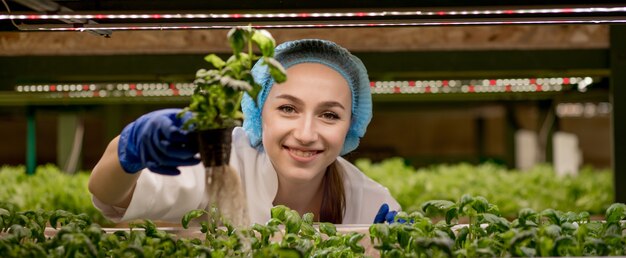Table of Contents
ToggleHow to do organic farming in India
In today’s world, where environmental concerns are on the rise, organic farming is becoming a popular choice. Making your own food at home organically not only ensures a healthier product but also helps reduce your carbon footprint. In this guide, we’ll tell you how to start organic farming in India, what you need to know, and how the benefits of home-grown organic food will come.

Introduction: Importance of Organic Farming in India
Organic farming is the cultivation of crops without the use of synthetic pesticides, fertilizers, or genetically modified organisms (GMOs). This method promotes a more sustainable and healthy way of growing food. In India, where agriculture is an integral part of the culture, organic farming at home is an excellent way for urban dwellers to connect with nature, improve their well-being and save money. Whether it’s your kids or your backyard, or your terrace, any space can be organically grown with the right approach.
Steps to start organic farming at home in India
1.Choose the right location
The first step in starting organic farming at home is choosing the right location. It is an ideal place if you have a garden. However, even small spaces such as balconies or windowsills can be transformed into mini gardens by using containers.
2. Choose the right plants
Not all plants are suitable for organic farming, so choose plants that thrive in your climate and soil conditions. Popular options for organic gardening in India include tomatoes, spinach, carrots, cucumbers, and herbs like mint and basil.
3. Prepare the soil
Healthy soil is the foundation of organic farming. In India, you can use natural soil from your garden or buy organic soil from nurseries. Enrich your soil by adding compost or organic matter such as manure, which improves its fertility and human life.
4. Use organic fertilizers
Avoid using chemical fertilizers to maintain the organic nature of your farm. Instead, use natural alternatives like compost, vermicompost, and green manure. These options not only nourish your plants but also improve soil health in the long run.
5. Water wisely
Efficient watering is the key to organic farming. Too much water causes the roots to rot, while too little water stresses the plants. Use a drip irrigation system or a watering can with a fine spout to ensure that water reaches the roots effectively.
6. Control pests naturally
One of the biggest challenges in organic farming is pest control. In India, you can use neem oil, garlic spray or beneficial insects like ladybugs to control pests naturally. These eco-friendly solutions protect your crops without harming the environment.
7. Harvesting and Maintenance
Regular maintenance and proper harvesting techniques are essential. Remove dead plants and weeds and monitor the growth of your plants. Harvest crops when ripe to enjoy fresh, homegrown produce.

Frequently Asked Questions: Organic Farming at Home in India
Organic farming at home in India helps improve soil health, reduces the use of harmful chemicals and ensures healthy food. It also promotes environmental sustainability and reduces your carbon footprint.
Yes, organic farming can be done in a small space like a balcony or terrace. You can use containers, raised beds, or vertical gardening methods to grow a variety of plants.
Vegetables such as tomatoes, chillies, cucumbers and leafy vegetables such as spinach and lettuce are suitable for organic farming in India. Herbs like mint, basil and coriander are also grown organically.
Natural pest control methods include neem oil, garlic spray and companion planting. You can also introduce beneficial insects like ladybugs to control pests without harming your crops.
If you don’t have a garden, consider container gardening or vertical farming. These methods allow you to grow plants in limited space and still enjoy fresh organic produce.

